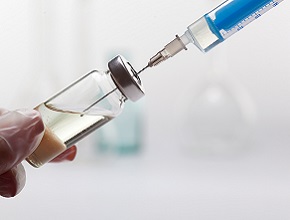Full article
A PDF of the article can be accessed free of charge through the website of Polish Archives of Internal Medicine.
Abstract
The progress in the understanding of the pathophysiology of rheumatic diseases provided a rational basis for the development of biologic disease-modifying antirheumatic drugs (bDMARDs) and targeted synthetic DMARDs (tsDMARDs), which have completely revolutionized the treatment of inflammatory conditions. These agents differ in terms of their effectiveness for controlling specific rheumatic diseases depending on the pivotal cytokine driving the inflammatory process.
Cytokine blockers were the first to be developed and rapidly expanded. They include agents that act against tumor necrosis factor alpha (TNF-alpha) (etanercept, infliximab, adalimumab, golimumab, and certolizumab pegol) and interleukin (IL) 6 (tocilizumab and sarilumab), IL-1 (anakinra, canakinumab, and rilonacept), IL-17 (secukinumab and ixekizumab), and IL-12/23 (ustekinumab) receptors. Lymphocyte-targeting agents include rituximab and belimumab, which act against B cells by different mechanisms, and abatacept, which is a T cell costimulation modulator. tsDMARDs, also known as small-molecule inhibitors, are oral drugs based on a novel strategy to treat inflammatory diseases. Janus kinase (JAK) inhibitors (tofacitinib, baricitinib, and upadacitinib) and phosphodiesterase 4 inhibitors (apremilast) form this group.
The major concern with the use of bDMARDs and tsDMARDs is a higher risk of infections. Performance of blood tests as well as screening for tuberculosis and hepatitis viral infection are mandatory prior to biologic therapy initiation. Adherence to an immunization program is also recommended. Whenever possible, the choice of bDMARDs and tsDMARDs should be guided by the patient’s comorbidities. There have been limited data on the use of these drugs during pregnancy, but anti-TNF-alpha therapy, rituximab, and anakinra seem to be safe. Biologic agents are expensive, but biosimilars have emerged as a cost-effective option with a potential to treat a greater number of patients.
 English
English
 Español
Español
 українська
українська











